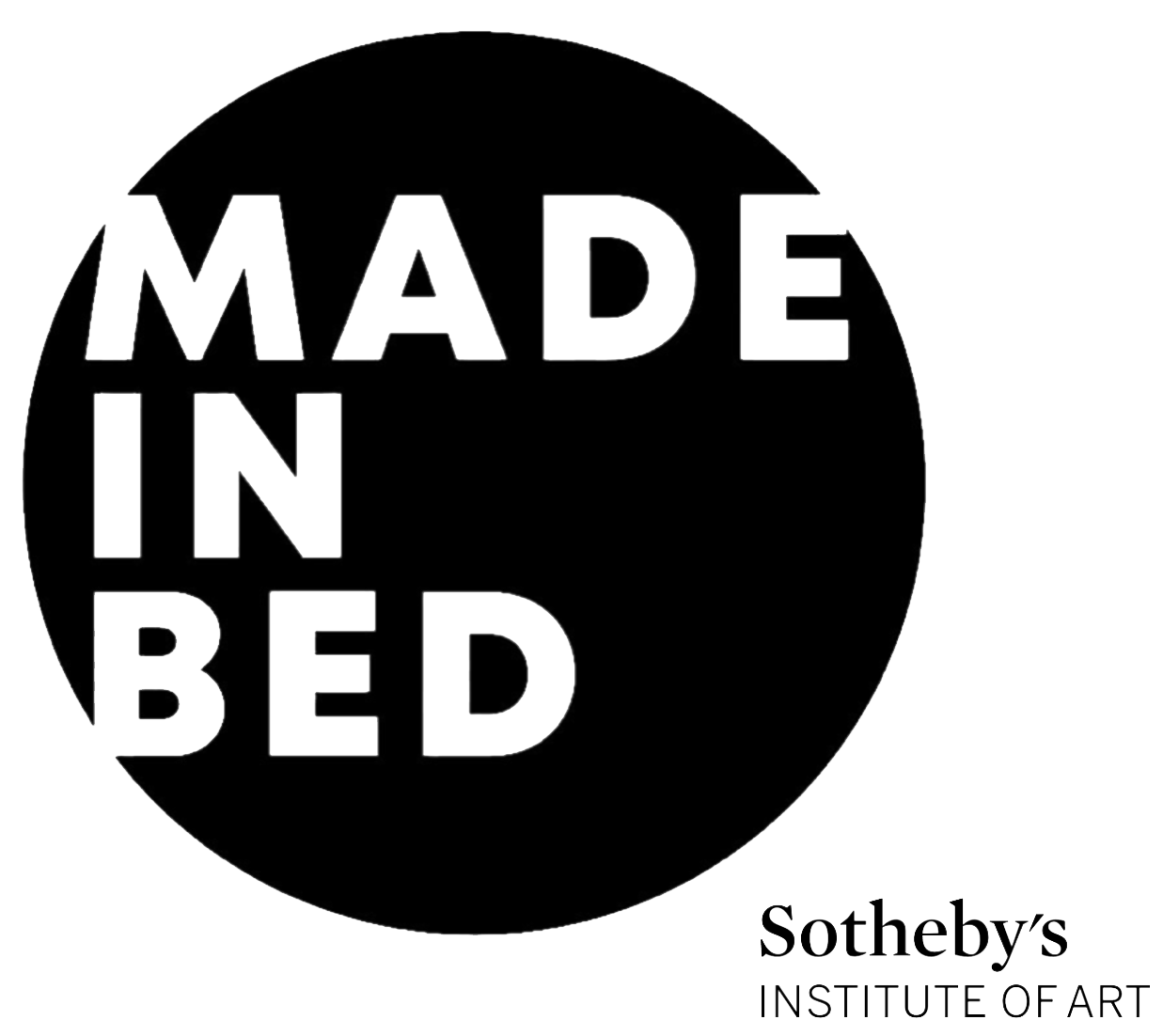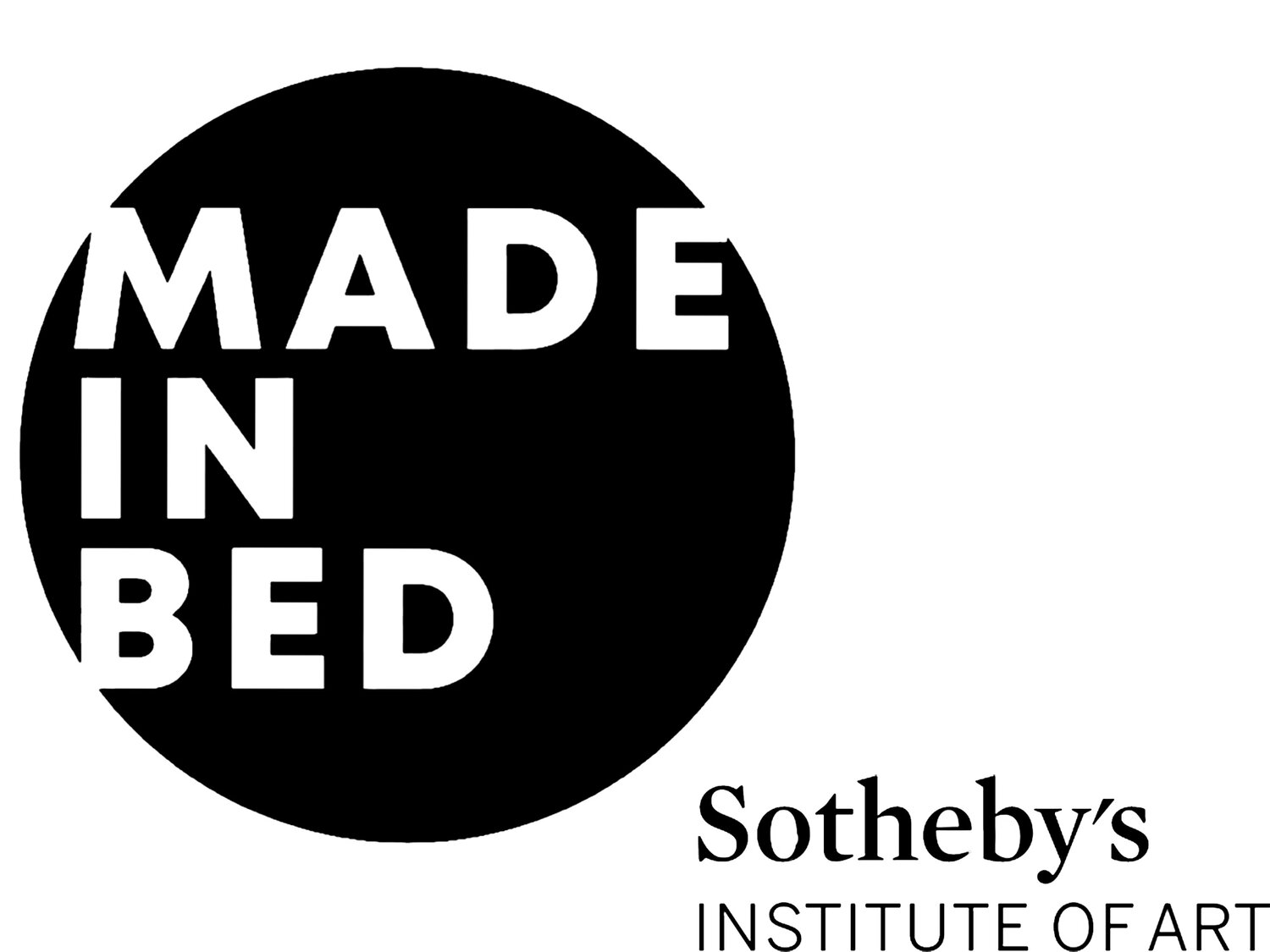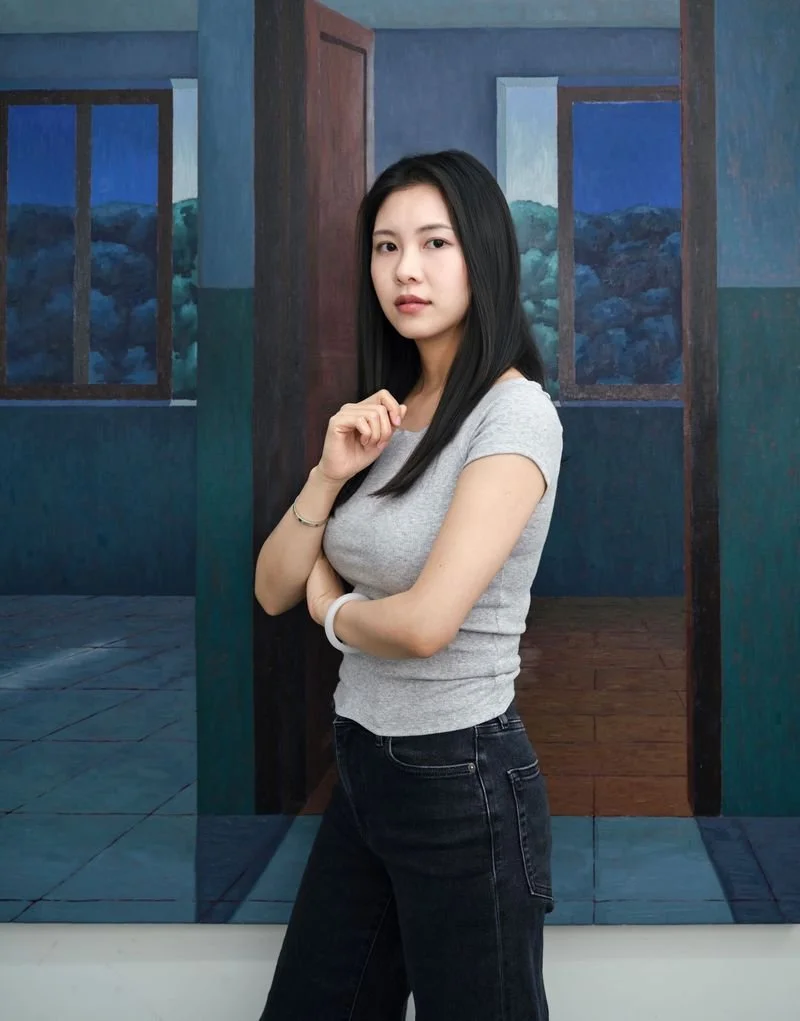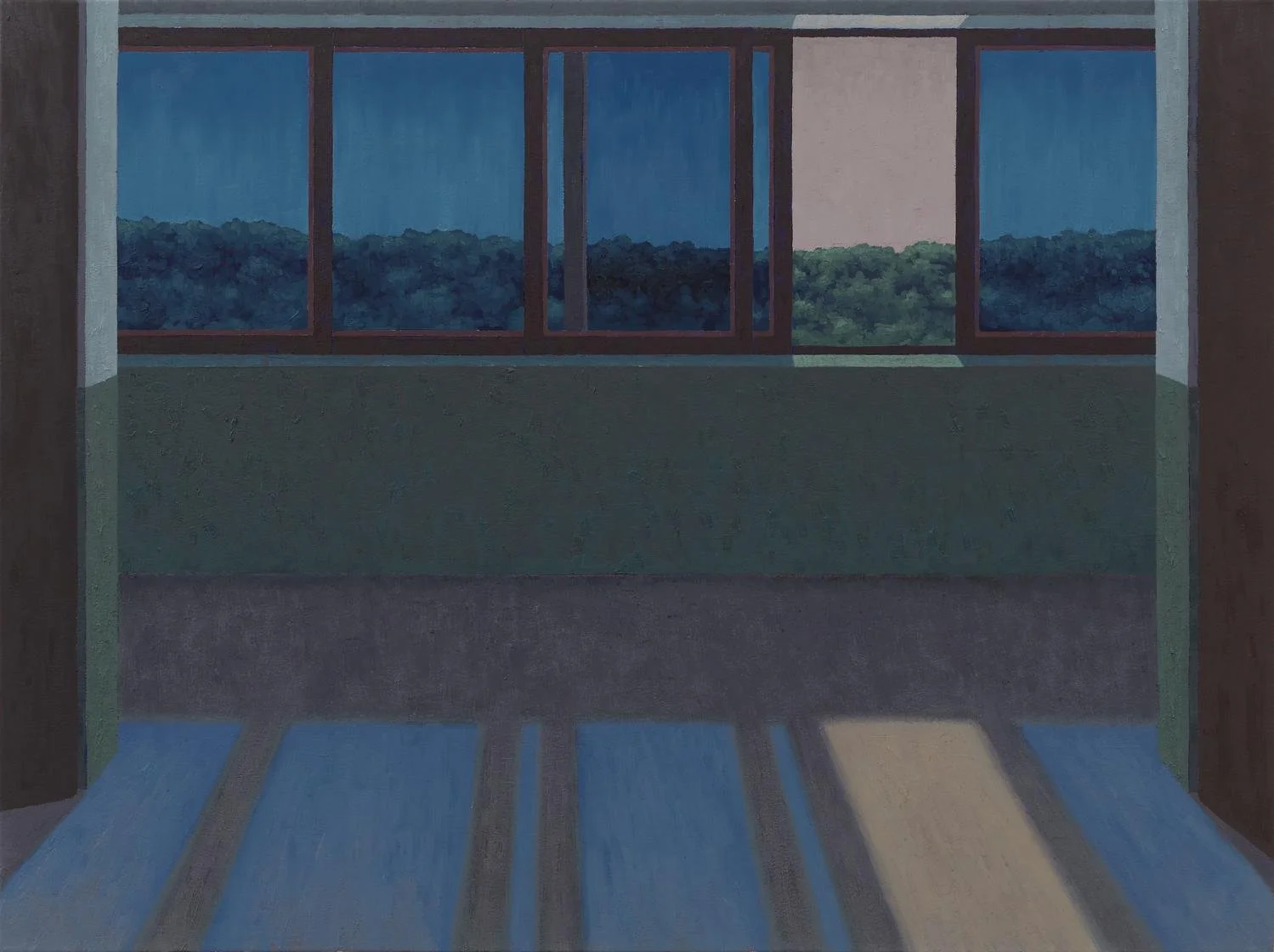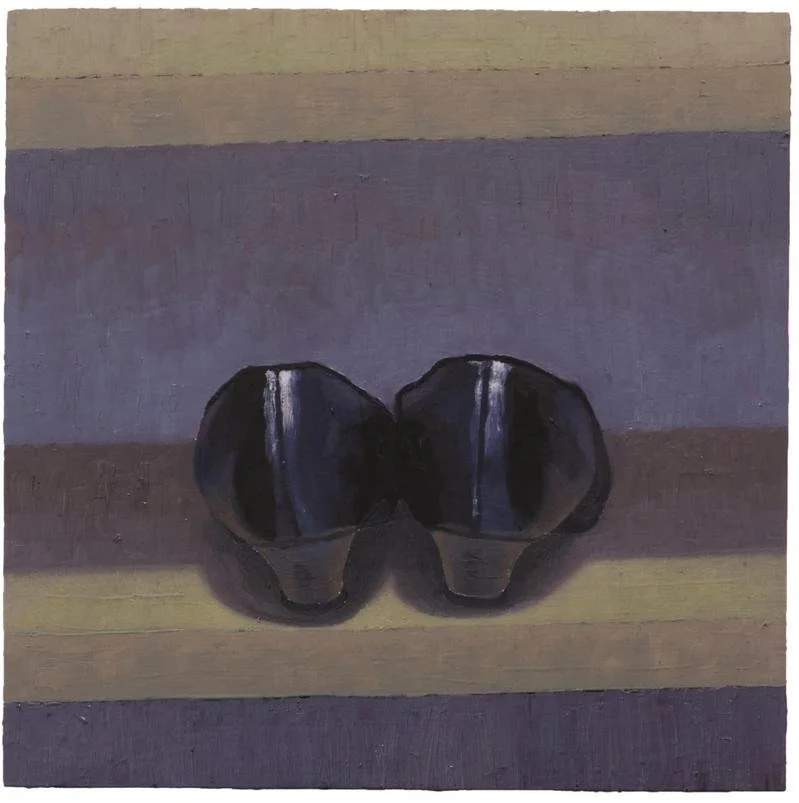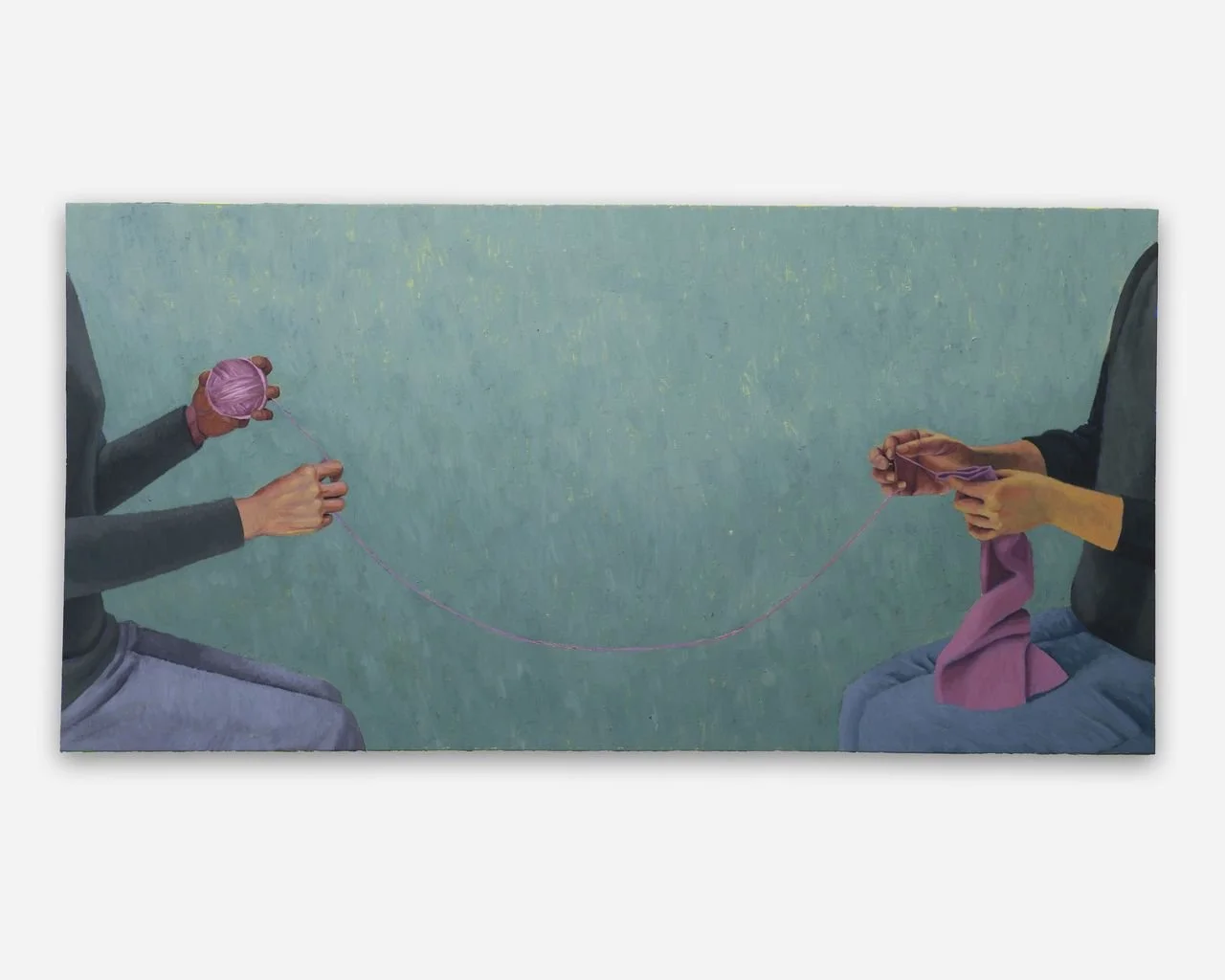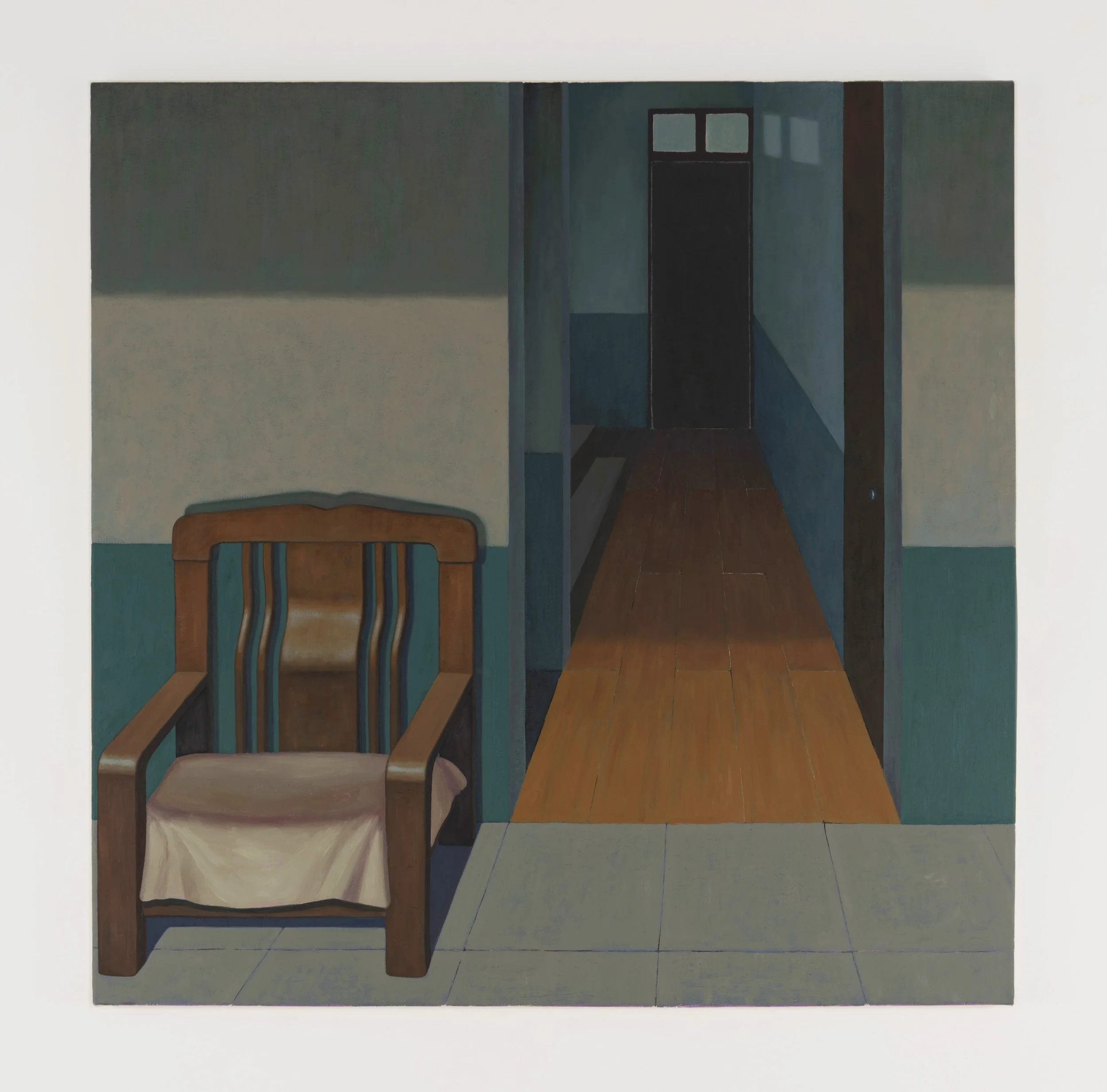Rebecca Wu
In a quiet studio in Brooklyn, Xiangjie Rebecca Wu traces the afterimages of her rural Chinese childhood. Her oil paintings, steeped in introspection, turn everyday domestic objects into vessels of memory—sites where loss, identity, and time softly accumulate.
Portrait of Xiangjie Rebecca Wu. Courtesy of the artist and Make Room Gallery.
Born in Jiangsu Province in 1998 and shaped by early years along the Yangtze River, Wu later moved to the United States to pursue her studies, first a B.A. in Studio Art and Philosophy at the College of Wooster, then an MFA at Pratt Institute in 2024. Her philosophical training infuses her work with a sensitivity to memory’s complexities and the elusive boundaries of self.
There is a particular hush to her paintings—a quiet attention to what remains overlooked, to the residues of touch and time. “The most important element is the colour influenced by sensations in early years living in my grandma’s room,” she reflects, recalling “the smell of soaked plaster wall in a humid, stuffy summer room, and the blue and greenish light cast from the glass window.” For Wu, each painting is less a record than a residue: “ghostly imagery” caught between holding on and letting go.
Rebecca Wu, Blue Window, Green Wall I, 2023. Oil on Wood Panel, 36 x 48 inches. Photo courtesy: the artist and Make Room Gallery.
Her latest solo exhibition, “Joy of Yesterday”, part of Make Room Gallery’s In Situ series, unfolds in a palette of pinkish purples, blues, and gentle ochres. For Wu, these paintings grew out of a simple yet radical painter’s urge: “I used to apply more green and blue tone, but I love to experiment with colours... Pinkish purple is the colour I’m interested [in] because that’s also how I feel about body that I feel intimate with, like families and myself. Then I start to build up all individual pieces.”
Rebecca Wu, Pink Riddle, 2024. Oil on Canvas, 48 x 60 inches. Courtesy of the Artist and Make Room Gallery.
Wu’s work is shaped as much by diaspora as by domestic ritual. After leaving China at 16, her longing for her childhood room “lurks in my subconsciousness for a long time that I [didn’t] even realize until recent years.” Brooklyn, she says, “is the place I think I must stay, it’s not super voluntary, so the self-isolated tendency probably pushes me to immerse in the inward turning world even more.”
That world is one of acute observation. Wu’s process begins with “imagery in my mind,” often recollections of objects. Marble balls, old watches, or glimpses of feet on cool tile. “Some objects are too specific that I only can find in China... I’ll ask my mom to help me take photos,” she laughs. “Sometimes I’ll even scroll through Taobao (the Chinese megastore app) for reference, and end up buying the thing, just to get the details right. It’s a little funny, but it helps me bring those memories into my work.”
Rebecca’s paintings from 2024 to 2025. Courtesy of the Artist.
Rebecca Wu, Marble Ball, 2024. Oil on canvas, 36 x 24 inches. Courtesy of the Artist and Make Room Gallery.
A subtle flicker of unease may arise when first encountering these shadowy rooms and ambiguous objects—echoes of childhood fears, like monsters lurking under the bed, just out of sight. There is an uncanny quality to the paintings, a presence both familiar and faintly unsettling. When asked whether she herself perceives these images as eerie or haunted, Rebecca offered a surprising perspective: “It’s interesting that you find my recent works scary. They’re actually the sweetest paintings I have ever made, probably,” she reflected. “‘Joy of Yesterday’ shows a series of paintings that captures the subtle bittersweetness after a family gathering—it connects me back to my core, to personal memories and the warmth of family nostalgia.”
Yet even in sweetness, there is always a trace of absence. She is drawn to what poet Louise Glück calls “a sadness overlooked”—a grief that lingers not as drama, but as residue. “When we think about memory, it’s really something very ghostly happened in your mind... You feel like you bring some kind of ghostly imagery in your mind about that space and those objects with yourself. Then suddenly they just come into your mind involuntarily. And when you start to grasp these things you feel like they are fleeting in your hand, immediately.”
Rebecca Wu, Let's Unravel the Sweater, 2025. Oil on Canvas, 24 × 48 inches. Courtesy of the Artist and Make Room Gallery.
Wu’s painting, Watch, captures this paradox with particular tenderness. Inspired by her grandfather—“probably the most close people I have in this world”—the painting was restaged with her father as a stand-in. “I have a very complex relationship with my father,” she says carefully. “So when I was making that painting, it became something very intimate—about both distance and closeness. But eventually, I realized that all those complicated feelings, even what I thought was anger, actually come from a place of love. How much love I have for him.”
Rebecca Wu, Watch I, 2025. Oil on Wood Panel, 8×10 inches.
Courtesy of the Artist and Make Room Gallery.
If Wu’s works often appear photographic in their stillness, it is because memory, for her, is always fragmentary and shifting. Painting is her means of both holding and letting go: “Sometimes it’s like letting it go. Sometimes it’s actually trying to understand what it is. Sometimes I feel like it’s actually questioning... That’s why I feel like sometimes my work is not just limited to the memory, but also expanded to the vision, because these are the things I saw and these are the things I gazed at for a long time and I want people to see it as well.”
The context of site is never an afterthought—Wu was surprised to find that the apartment where '“Joy of Yesterday” was installed so closely echoed the spaces of her paintings: “A lot of colours and furniture element are echoing together in literal sense. The painting called Room have almost same floor and door that feel like it means to be there. So I think I’m surprised cause I don’t know about that site before I made these paintings.”
Rebeca Wu, Room I, 2024. Oil on canvas, 48 x 48 inches.
Courtesy of the Artist and Make Room Gallery.
Installation View of “Joy of Yesterday.” Courtesy of the Artist and Make Room Gallery.
Looking ahead, Wu is already turning toward new series—closets, shelves, mirrors: “I will center on a lot of like kids’ action around the closet... the fragments of the body on the mirror of the closet, and you see some objects on a shelf and weird shadow casting on a shelf.”
But even as her subjects shift, Wu’s gaze stays rooted—steadily attentive to the fleeting points where memory, touch, and language almost, but never quite, converge.
To explore more of Rebecca’s practice and the “Joy of Yesterday” project, visit Make Room Gallery’s In Situ series.
Rebecca Wu, Shirt, 2024. Oil on canvas, 36 × 48 inches. Courtesy of the Artist and Make Room Gallery.
Many thanks on behalf of MADE IN BED to Rebecca Wu and Make Room Gallery’s Emilia Yin and Carina Yang.
Alice Kim
Interviews Co-Editor, MADE IN BED
